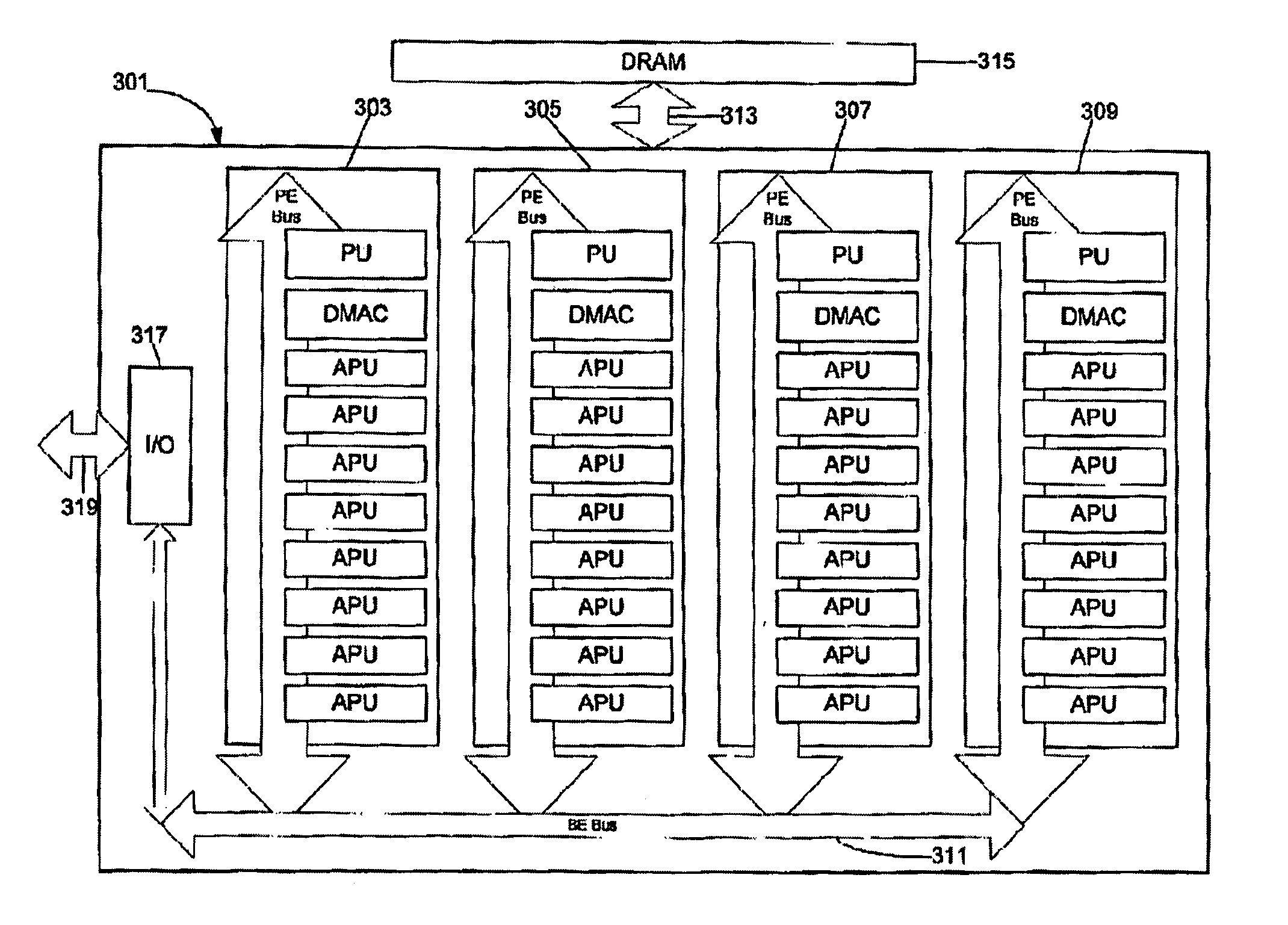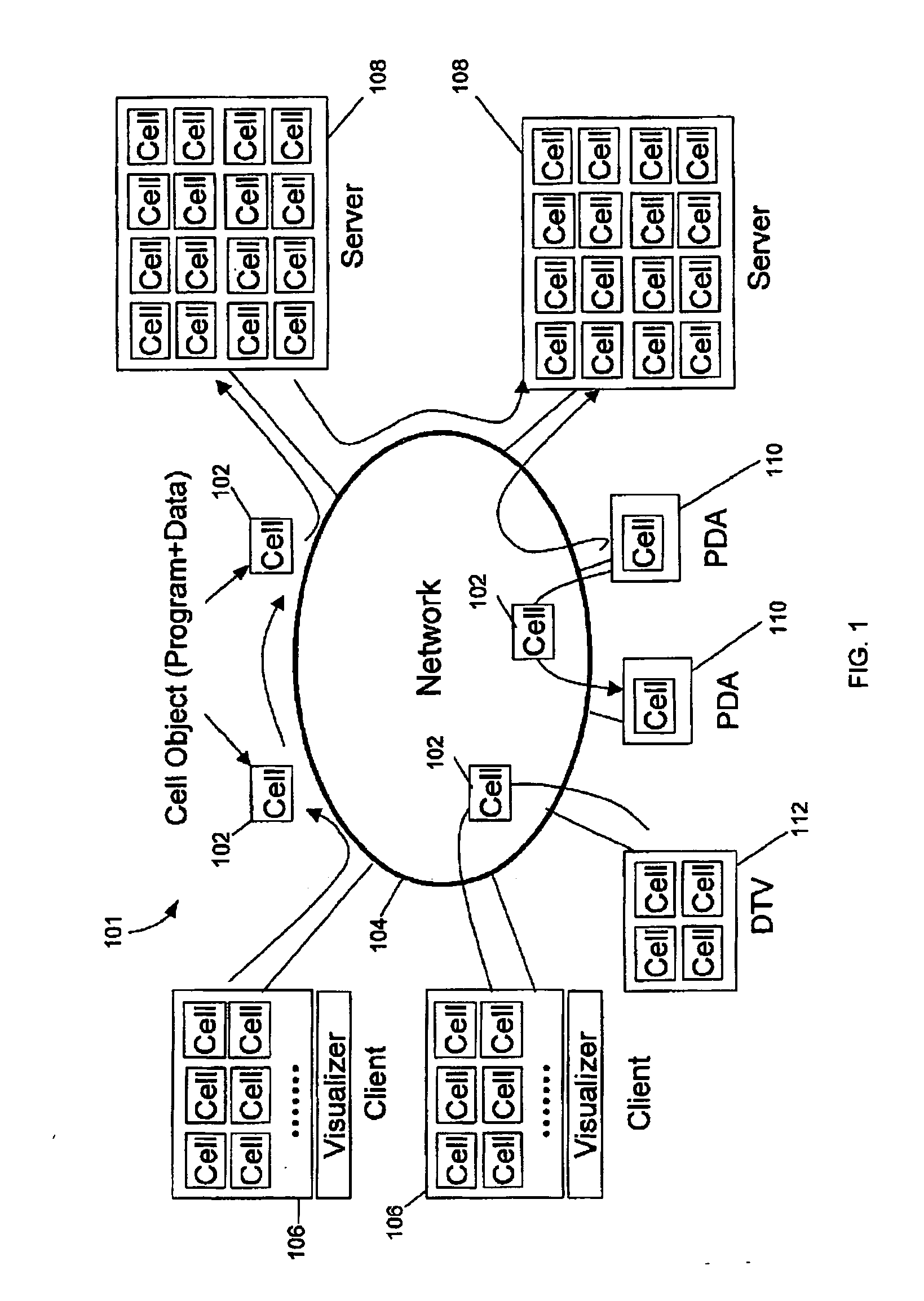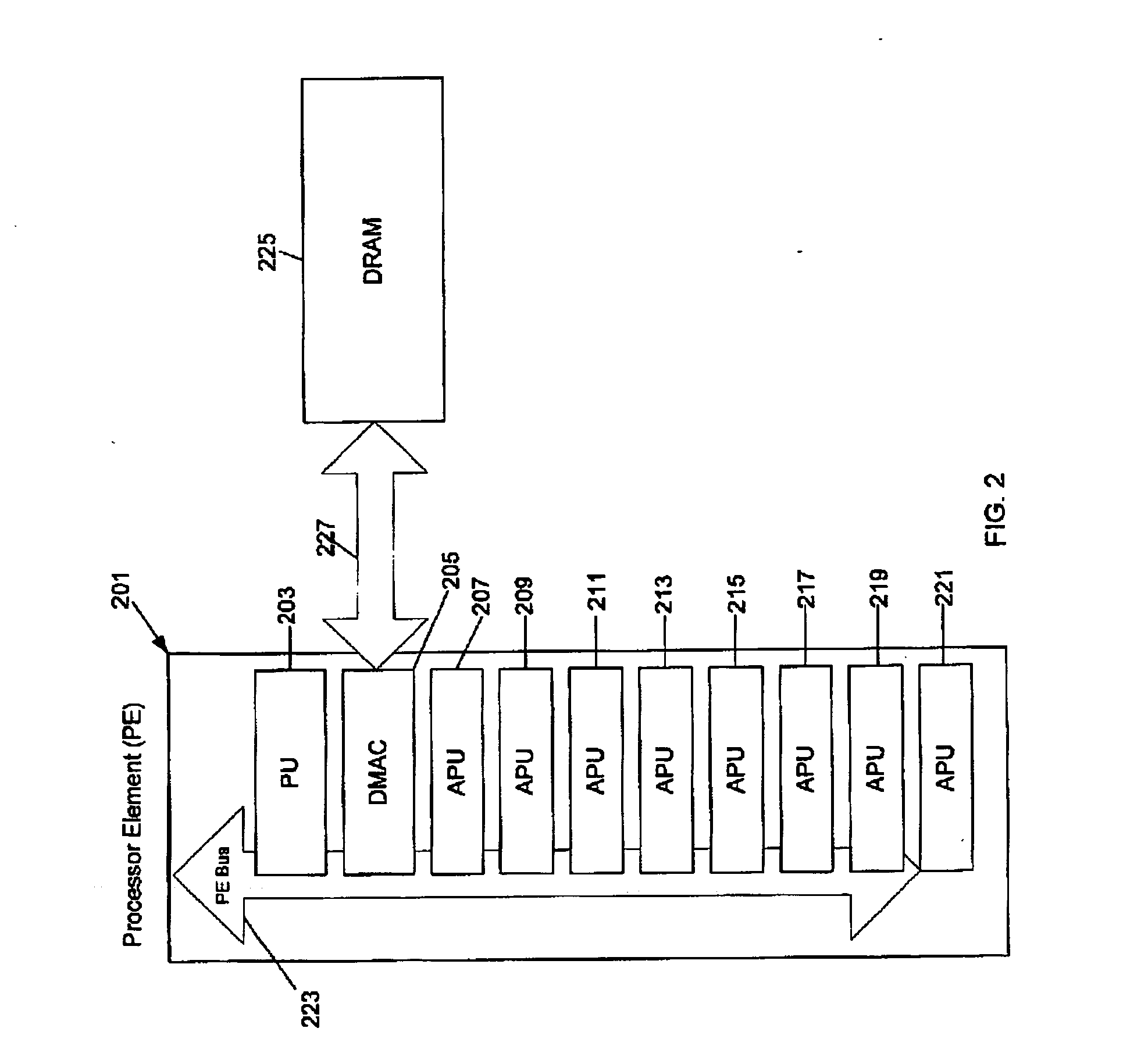Multi-chip module with third dimension interconnect
a technology of multi-chip modules and interconnections, applied in the direction of multi-programming arrangements, instruments, and architectures with multiple processing units, can solve the problems of complex programming techniques, complex programming techniques, and heterogeneous combination of computers and computing devices on today's computer network, so as to avoid the computational overhead of a data synchronization scheme implemented
- Summary
- Abstract
- Description
- Claims
- Application Information
AI Technical Summary
Benefits of technology
Problems solved by technology
Method used
Image
Examples
Embodiment Construction
[0060] The following is intended to provide a detailed description of an example of the invention and should not be taken to be limiting of the invention itself. Rather, any number of variations may fall within the scope of the invention, which is defined in the claims following the description.
[0061] The overall architecture for a computer system 101 in accordance with the present invention is shown in FIG. 1.
[0062] As illustrated in this figure, system 101 includes network 104 to which is connected a plurality of computers and computing devices. Network 104 can be a LAN, a global network, such as the Internet, or any other computer network.
[0063] The computers and computing devices connected to network 104 (the network's “members”) include, e.g., client computers 106, server computers 108, personal digital assistants (PDAs) 110, digital television (DTV) 112 and other wired or wireless computers and computing devices. The processors employed by the members of network 104 are con...
PUM
 Login to View More
Login to View More Abstract
Description
Claims
Application Information
 Login to View More
Login to View More - R&D
- Intellectual Property
- Life Sciences
- Materials
- Tech Scout
- Unparalleled Data Quality
- Higher Quality Content
- 60% Fewer Hallucinations
Browse by: Latest US Patents, China's latest patents, Technical Efficacy Thesaurus, Application Domain, Technology Topic, Popular Technical Reports.
© 2025 PatSnap. All rights reserved.Legal|Privacy policy|Modern Slavery Act Transparency Statement|Sitemap|About US| Contact US: help@patsnap.com



